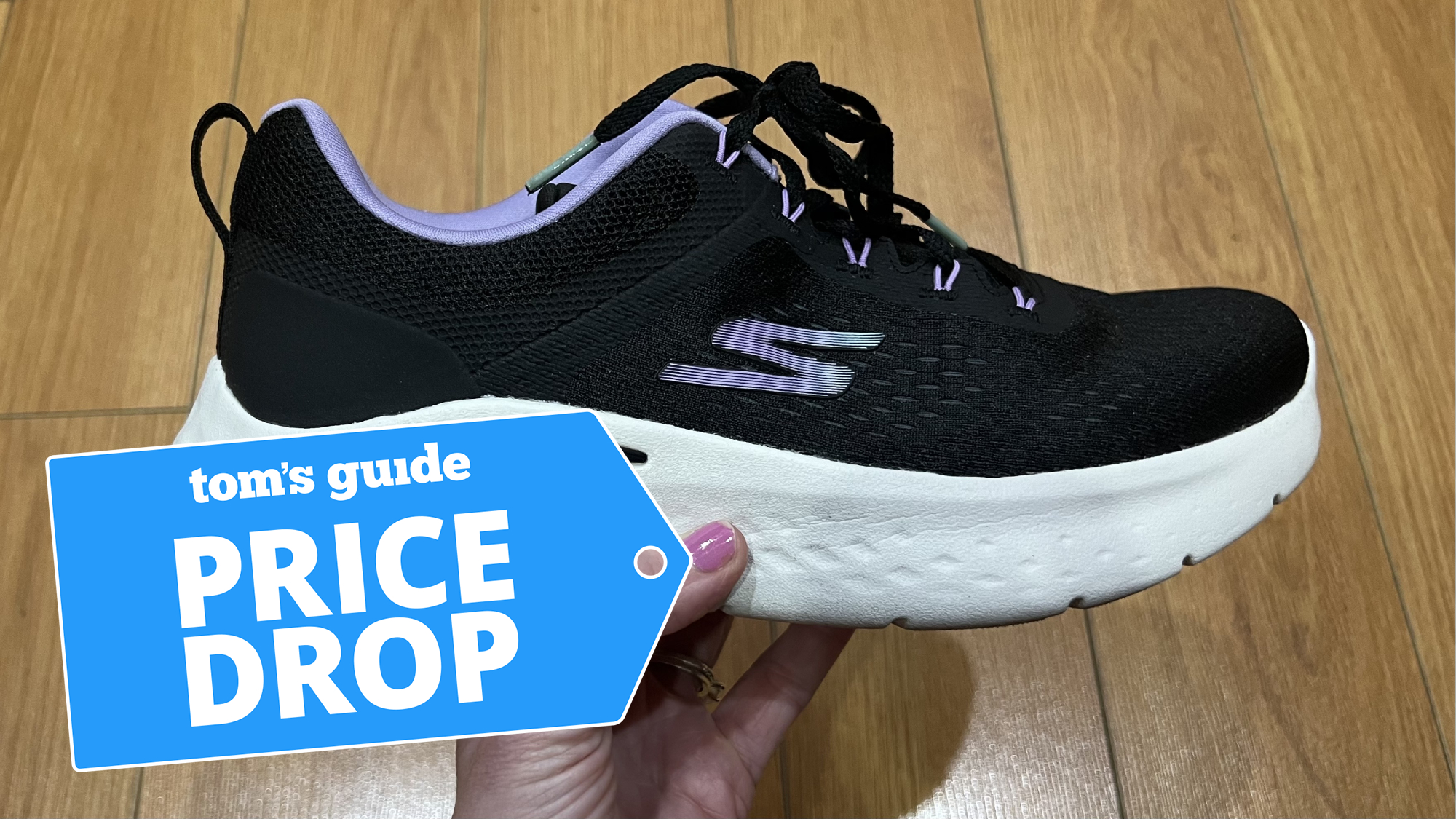What is a sleep apnea mask and do you need one? A physician weighs in
The benefits of sleep apnea masks and when to seek treatment
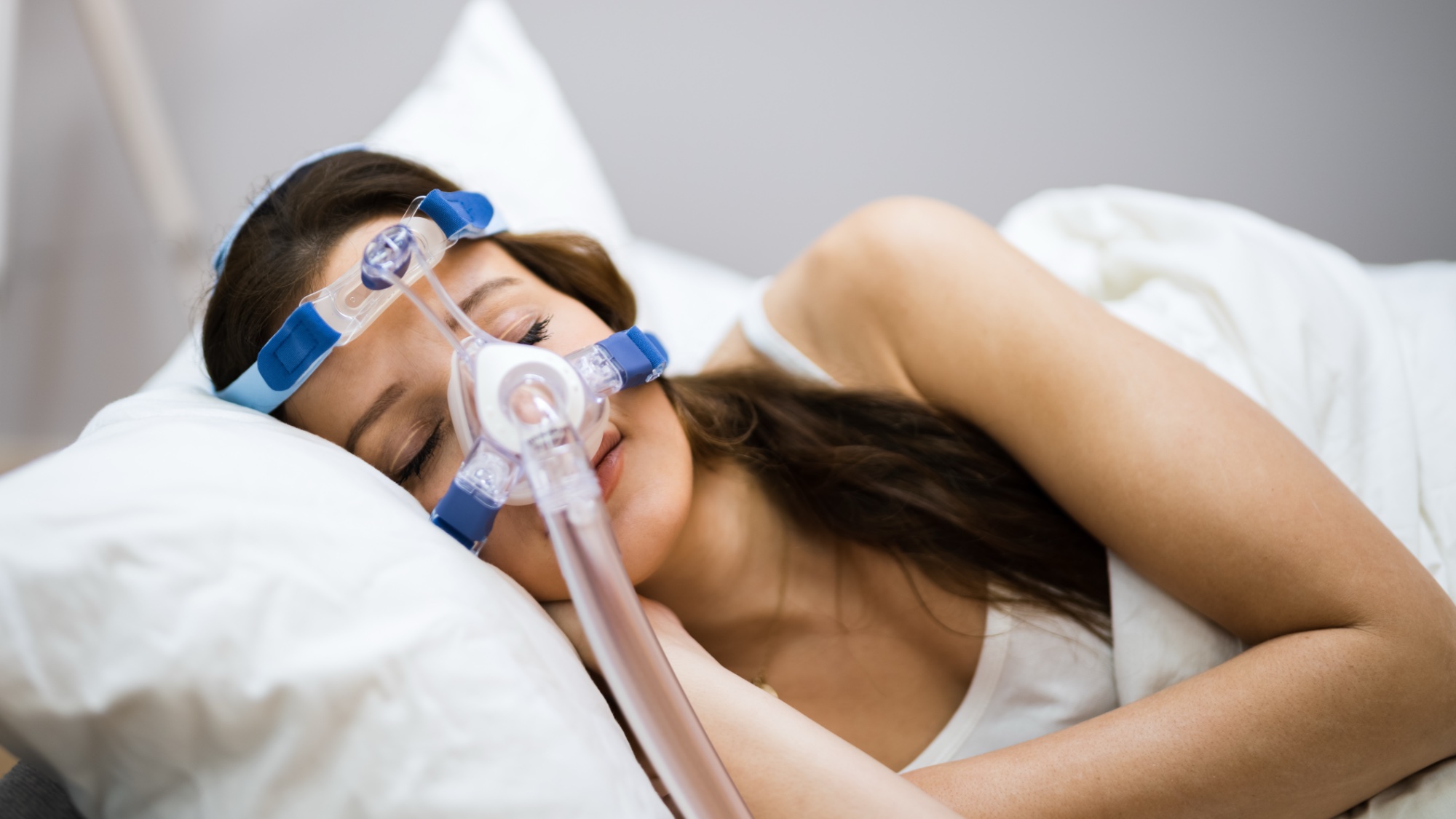
From this year’s best mattress to anti-snoring devices, there are plenty of things you can invest in for better quality sleep. But if you experience sleep apnea – where your breathing stops and starts through the night – you might need extra help to get the best rest possible. But what is a sleep apnea mask?
Sleep apnea masks work alongside Continuous Positive Airway Pressure (CPAP) machines to deliver a regular flow of pressurized air, to keep your breathing steady. While sleep apnea masks are one of the most common treatments for sleep apnea, we always recommend consulting your doctor before using these devices.
To find out more about sleep apnea masks, we spoke to Dr. Carlos Nunez, Physician and Chief Medical Officer at medical equipment manufacture ResMed. Here, he explains how useful sleep apnea masks can be, plus tips on how to spot symptoms of the sleep disorder and other treatment methods.
What is sleep apnea?
Sleep apnea is a sleep disorder characterized by interrupted breathing. There are two main types of sleep apnea: obstructive sleep apnea (OSA) and central sleep apnea (CSA). In both cases, CPAP machines and sleep masks are often recommended as treatment.
Research estimates close to a billion people worldwide experience OSA, in mild to severe forms. "If left untreated, sleep apnea can impact your mood, and lead to weight gain, low energy levels, headaches, or even memory problems," warns Dr. Nunez.
What is a sleep apnea mask?
A sleep apnea mask is a device that fits over your nose and mouth and is attached via a hose to a Continuous Positive Airway Pressure (CPAP) machine. The two work together to deliver constant and steady pressurized air to keep your airways open and unobstructed, to help you breathe while you sleep.
Dr. Nunez describes CPAP machines as the "gold standard" in the treatment of obstructive sleep apnea. "If you’ve been diagnosed with sleep apnea, your doctor may recommend that you use a CPAP device".
Sign up to get the BEST of Tom's Guide direct to your inbox.
Get instant access to breaking news, the hottest reviews, great deals and helpful tips.
But as Dr. Nunez explains, sleep apnea masks can be "unpopular", due to a reputation for discomfort (studies show many people quit using a CPAP machine within the first year of use).
However, many sleep apnea masks are designed with comfort and breathing relief in mind. "Because everyone’s face is unique, it’s important to choose a mask based on your facial features," says Dr. Nunez. "These devices are designed to make it easier for people to start and stick with CPAP therapy, and some include features designed to combine softness, breathability, and a high-performance seal for exceptional comfort in a mask."
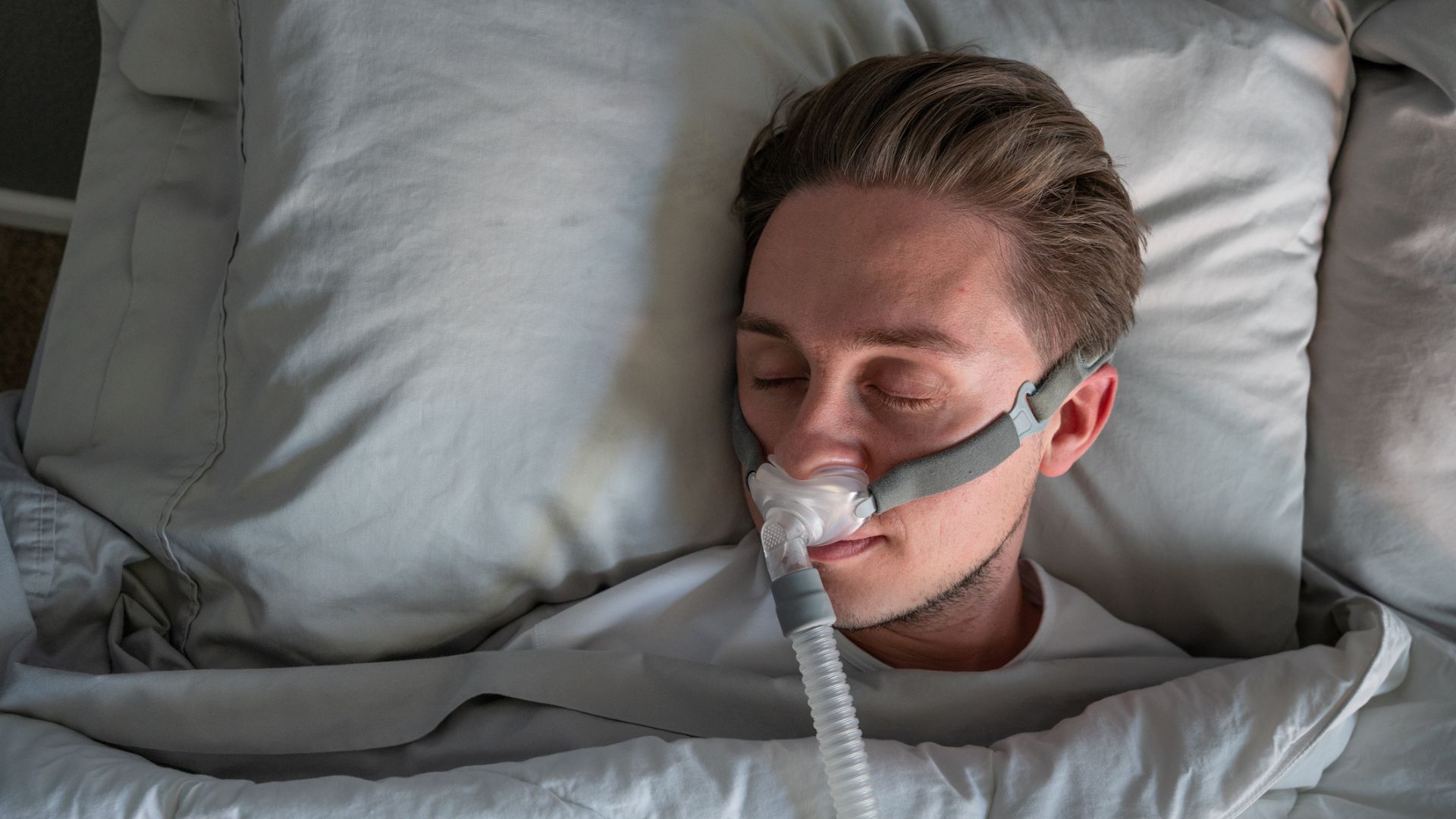
How do sleep apnea masks help relieve symptoms?
Symptoms of sleep apnea include abrupt awakenings, loud snoring, shortness of breath and excessive daytime sleepiness as a result of disrupted sleep. Sleep apnea masks work to reduce these symptoms by regulating breathing with the use of pressurized air.
The CPAP machine uses an air filter to purify air before pressurizing it. A motor then blows the air through a tube to the sleep apnea mask attached to your nose and mouth. The continuous flow or air prevents the tongue, soft palate and uvula from collapsing into your airway, helping you breath comfortably and consistently.
In the process, snoring is reduced, sleep quality is improved and serious health issues associated with sleep apnea are prevented. CPAP machines aren't a cure for sleep apnea, but they can minimize its impact on your sleep health.
4 signs you need a sleep apnea mask
1. Tiredness is affecting your day to day
With sleep apnea wreaking havoc on your sleep schedule, your productivity at work and energy to complete daily tasks can drop. Even after what felt like a full night's sleep you might feel drowsy during the day, because sleep apnea can disrupt your restorative rest without your realizing.
A sleep apnea mask can help you regulate your breathing through the night, so you get the quality ZZZs your body needs. In the morning, you should wake up refreshed, able to coast through your to do list with more energy.
2. Snoring is disrupting your partner
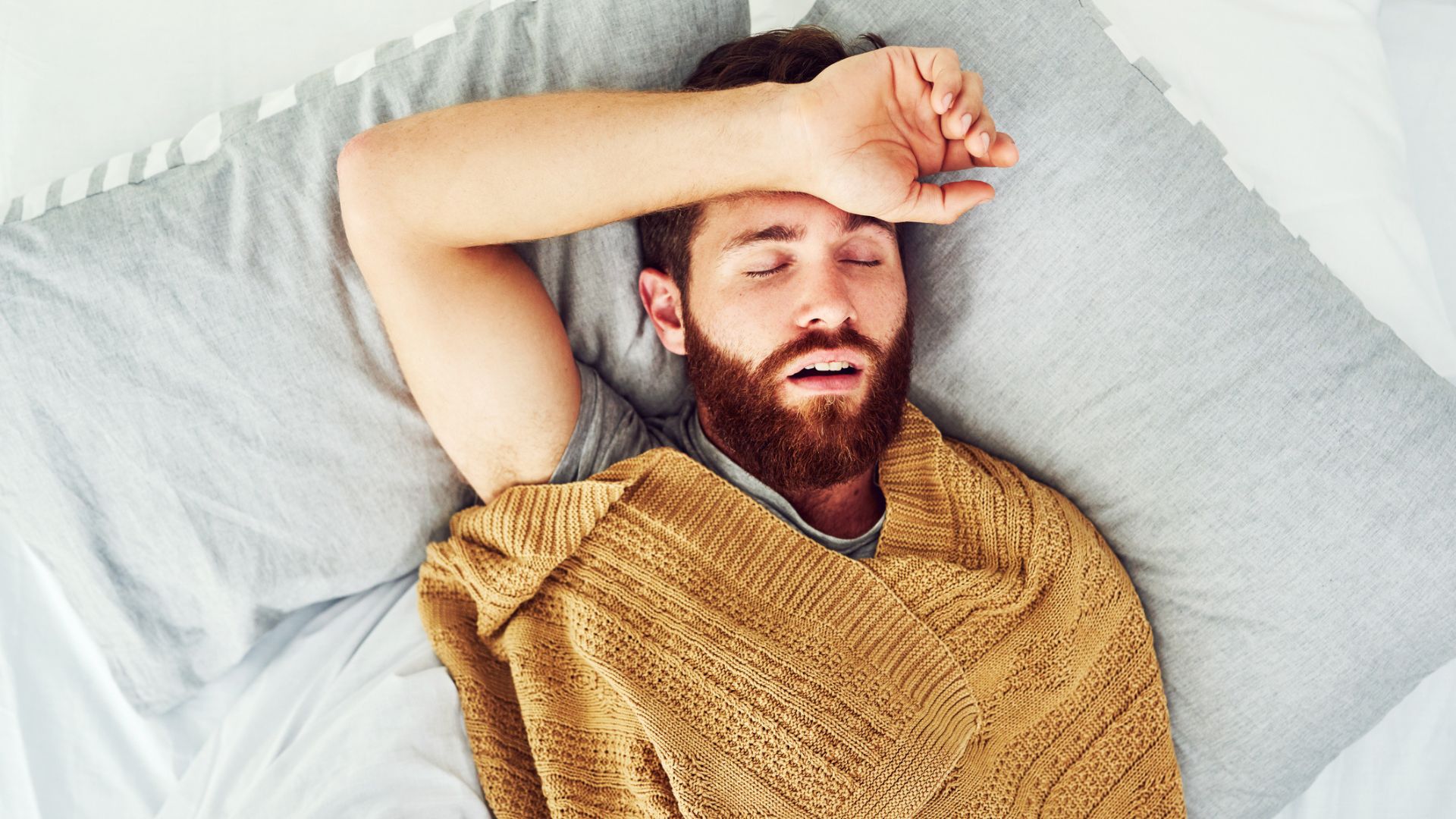
As sleep apnea affects your breathing and airways, snoring is an unsurprising symptom of the condition. From dust mites to alcohol, there are plenty of things that cause you to snore. But if you’ve whittled your snoring source down to sleep apnea, a mask might be a good choice – and not just for your own sleep health.
“Those who suffer from snoring may worry about the effect that it can have on their partner’s sleep quality and overall relationship," says Dr. Nunez. "Being constantly woken up at night can lead to relationship problems, and shuffling off to the spare room in the middle of the night or crashing on the sofa may not be a long-term solution. Don’t let snoring drive a wedge between you and your loved ones.”
3. A lack of sleep is affecting your mental health
Sleep apnea is not only a physical affliction, it can have a knock on effect on your mental health too. “Beyond the prevalence of serious physical comorbidities associated with sleep apnea, the condition can also drastically impact a person’s overall wellness and quality of life,” Dr. Nunez explains.
In short, a lack of sleep can make you sad. Without an adequate mixture of deep and REM sleep, you won’t be emotionally equipped to deal with day-to-day life. We’re all familiar with how minor stressors can feel ten times worse on days we feel more tired. Hence, when sleep apnea is leading to sleep deprivation, your mental health can take a hit.
4. Your overall health is suffering
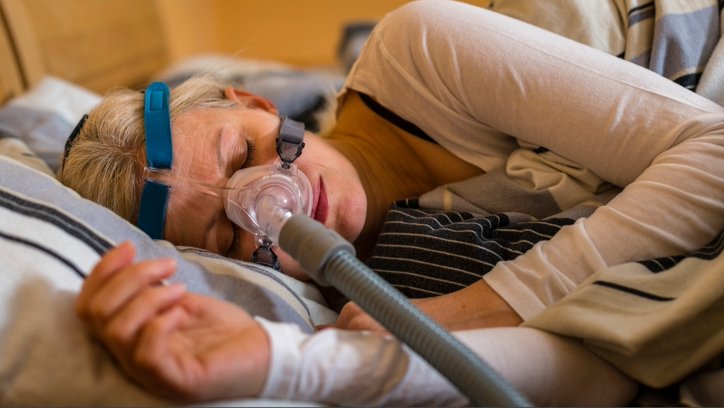
In serious cases, sleep apnea can make you more susceptible to concerning medical conditions and health complications. "Untreated sleep apnea can lead to increased risk for other chronic health and life-threatening conditions like heart failure, diabetes and even stroke," Dr. Nunez warns.
In these cases your doctor may recommend you use a sleep apnea mask. But if you’re worried your sleep apnea is causing any of these conditions, you must seek medical advice. A mask might help, but your doctor will be able to offer treatment tailored to your body and health needs.
When to consult a doctor about sleep apnea masks?
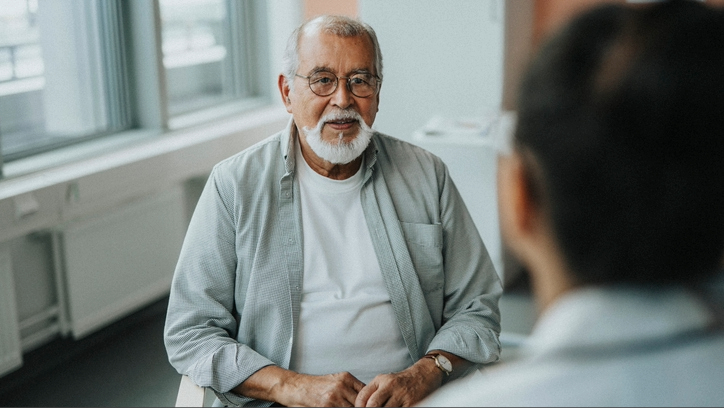
Before buying a sleep apnea mask, your doctor needs to be in the loop. CPAP machines might be the most well known treatment for sleep apnea, but as with all medical advice online, it's important to speak to a qualified professional – a personal diagnosis and prescription from a trained medical professional will always trump online advice.
Dr. Nunez echoes the importance of medical professional interference. "If you or someone you love start exhibiting any of the common symptoms of sleep apnea, it is important that you advocate for your health and consult with your doctor as soon as possible, as CPAP therapy may be a fit for you".
But you're unlikely to receive a sleep apnea diagnosis and CPAP machine straight away. “As a first step, your doctor may recommend a sleep assessment to uncover the root cause of your symptoms and identify any additional health issues," explains Dr. Nunez. "With this context, you and your doctor can formulate a plan to take back your sleep and ensure more restful nights moving forward.”
5 other sleep apnea remedies recommended by experts
Before jumping to the mask, Dr. Nunez advises you to look at your lifestyle and seek medical assistance. “Addressing the disorder often involves a combination of lifestyle changes and medical interventions, he says” Here are some of the most common sleep apnea treatments...
1. Nose strips
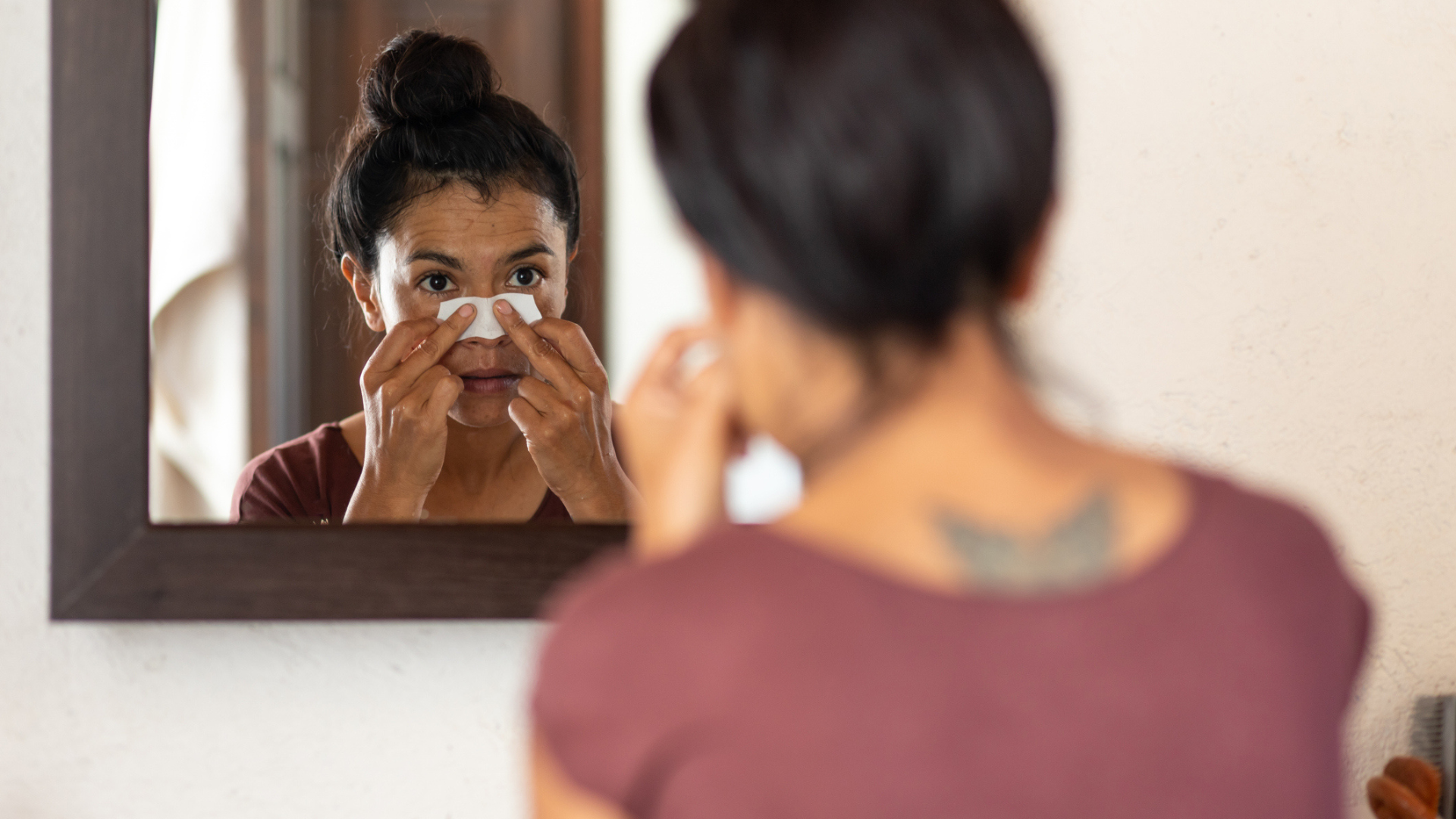
Nasal strips are recommended for mild cases of sleep apnea (five to 15 breathing interruptions per hour is categorized as mild by the AASM). They work by pulling on the nasal walls to reduce resistance in the nasal passages and improve airflow. With the nasal passages open, it's easier to breathe through the nose (these are also common anti-snoring devices).
However, it is important to note nose strips are not a one-size-fits-all treatment for sleep apnea. Those with severe sleep apnea (where you experience more than 30 breathing interruptions per hour of sleep) should consult a doctor and look for more effective solutions.
2. Mouthguards
Mouthguards for sleep apnea serve a similar function to nasal strips, helping maintain regular breathing in a manner less invasive than CPAP machines. Mouthguards can be purchased over the counter or personalized to fit your own mouth.
While nasal strips work to hold the nasal passages open, mouthguards help keep the throat and mouth clear. By moving your lower jaw and tongue forward, there's less risk of the throat collapsing and the airway becoming blocked.
3. Lifestyle changes
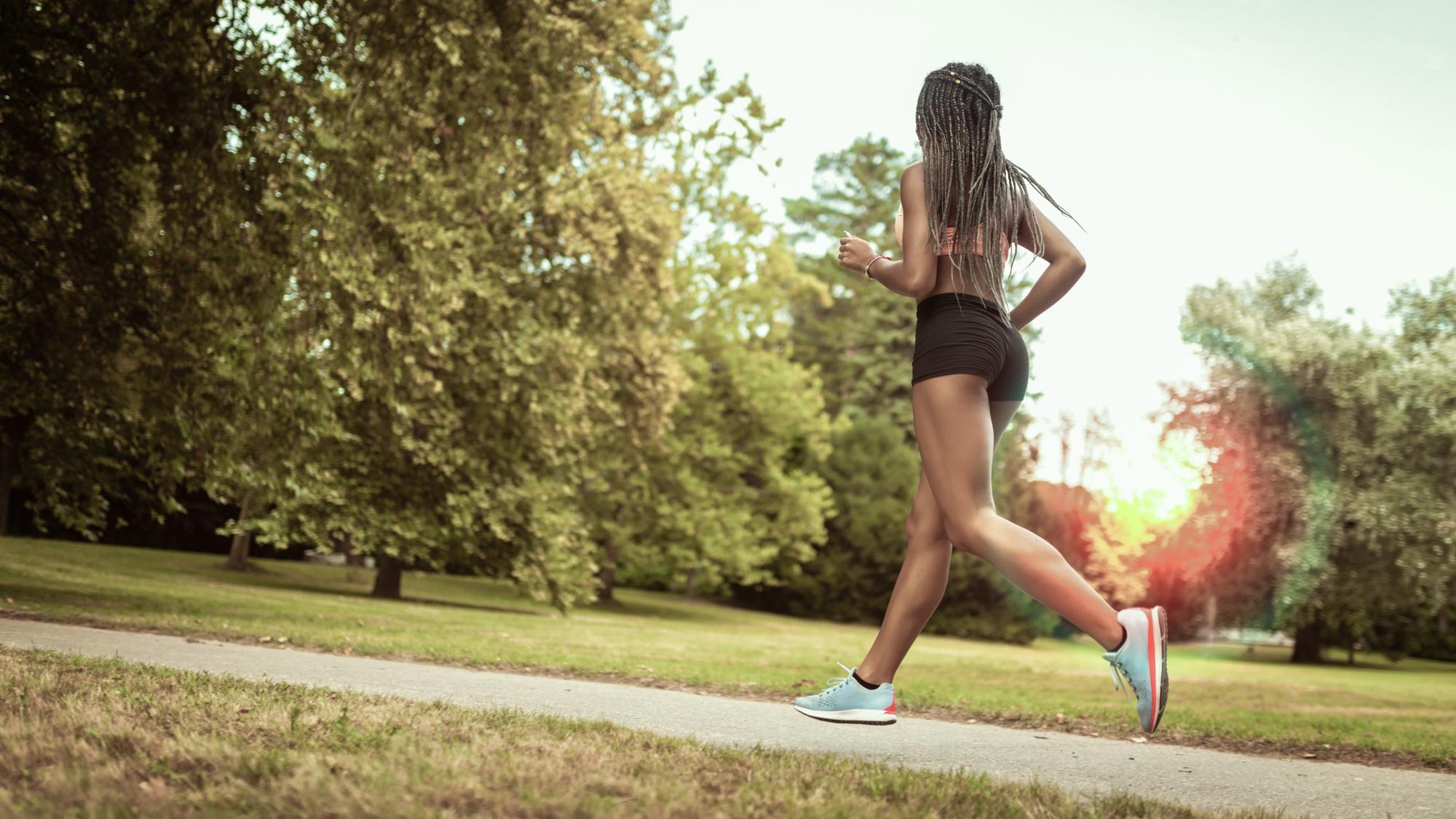
Lifestyle changes, such as quitting smoking and limiting alcohol consumption, can be effective methods for limiting symptoms of sleep apnea. A few drinks before bed might not seem like an issue, but as Dr. Nunez says, alcohol can slow breathing and relax muscles in the airway, increasing the risk of blockages.
Studies have repeatedly shown a correlation between sleep apnea and alcohol consumption. Some people who are not necessarily diagnosed with the condition can even experience sleep apnea episodes after a night of heavy drinking.
Maintaining a healthy body weight through a balanced diet and regular exercise can also help limit sleep apnea symptoms. Studies have shown a link between weight gain and sleep apnea, while weight loss is recommended by the AASM to help beat breathing-related sleep disorders like sleep apnea.
4. Positional therapy
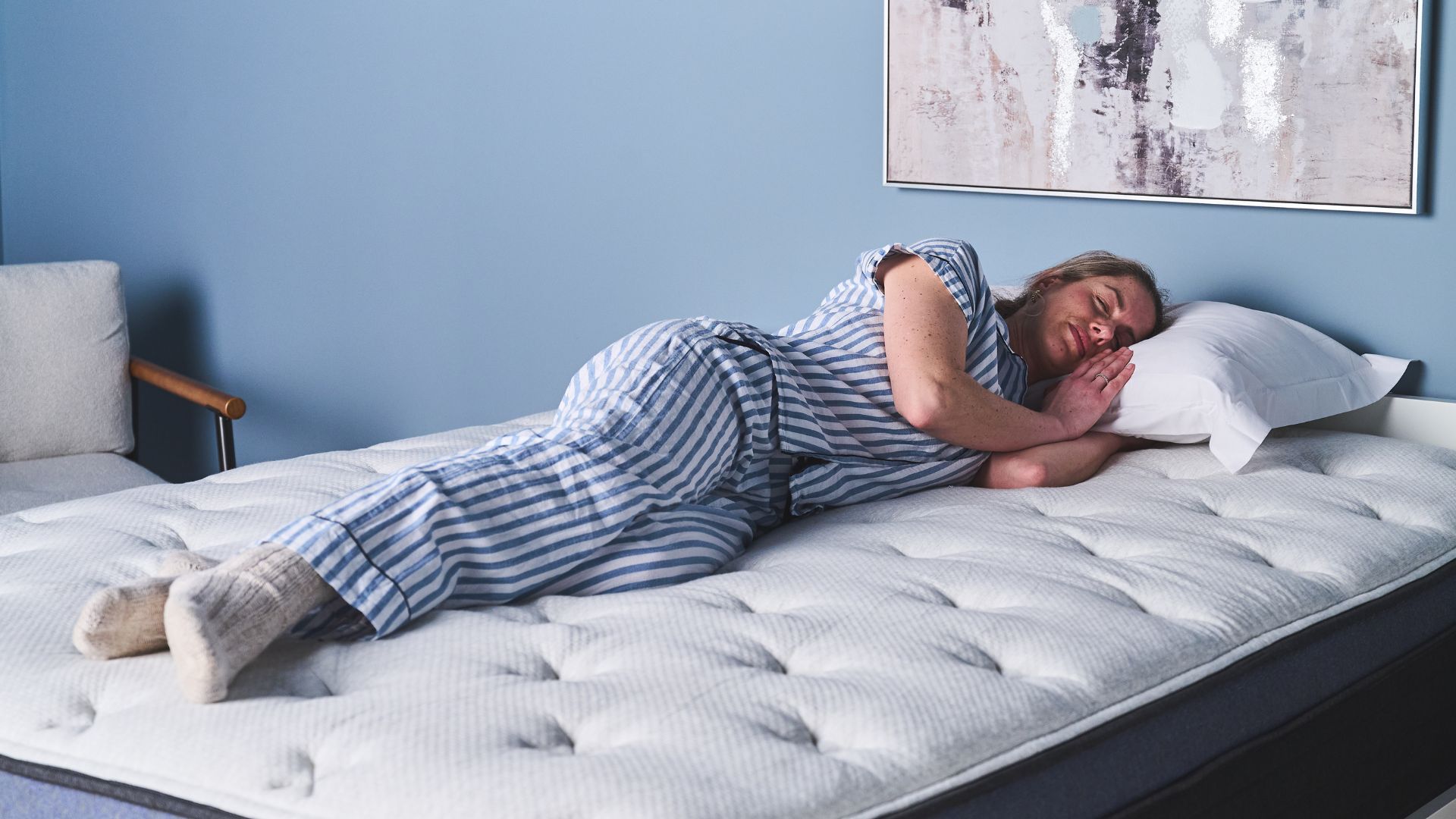
Simply switching your sleeping position can help with sleep apnea. Side sleeping gets a lot of kudos from chiropractors who generally recommend it as the best position for sleep, but side sleeping can also help limit symptoms of sleep apnea. On the other hand, back sleeping is often identified as the worst position for sleep apnea.
Think of the first aid recovery position – lying on your side counters the gravity that can cause your tongue and throat tissue to collapse into your airway. Lying on your back, however, exacerbates the issue. Side sleeping helps keep your airways open to reduce the number of breathing disruptions you experience. Therefore, reducing symptoms of sleep apnea.
It can be hard to make the switch to side sleeping, but positional devices can aid the change. These fit to your back, so if you try to roll in the night, you're stopped (or woken up). And you might want to consider one of this year’s best mattresses for side sleepers, for ultimate pressure relief, support and comfort.
5. Nasal pillows
Nasal pillows are a type of CPAP mask consisting of two small cushions that fit into the nostrils to deliver air pressure. They are a good option for people who feel claustrophobic in larger sleep apnea masks or have facial hair that makes other masks difficult to use.
There are several benefits of nasal pillows. The soft, cushioned inserts are comfortable and unlikely to move as you sleep, while the simple design and lack of bulk makes it easier to move around in the night.
Why treating sleep apnea is important
High blood pressure, cardiovascular disease, stroke, mental health and neurocognitive disorders are all the worst case scenario outcomes of sleep apnea. Hence identifying symptoms and treating it early is important.
Dr. Nunez emphasizes the importance of seeking medical help: “if left untreated, sleep apnea can put extreme pressure on your body, such as your heart and immune system, potentially compromising those systems. That’s why talking to your doctor and learning to recognize the symptoms of sleep apnea are important.”
"Arming yourself with the information can help you to recognize the signs of the condition and possibly save your life, or that of someone you love," says Dr. Nunez. "Most importantly, this can help ensure you can have an informed conversation with your healthcare provider and advocate for your own health."

Eve is a PPA-accredited journalist with an MA in Magazine Journalism from Cardiff University. She is a Sleep Staff Writer at Tom’s Guide and has four years’ experience writing health features and news. She is particularly interested in the relationship between good sleep and overall health. At Tom’s Guide Eve is responsible for coverage and reviews of sleep tech and is our smart and cooling mattress specialist, focussing on brands such as Eight Sleep and Sleep Number. She also covers general mattress reviews, seeks out the best deals to produce tried-and-tested buyer's guides for sleep accessories and enjoys writing in-depth features about sleep health. She has been involved in rigorous testing procedures for mattress reviews in our Sleep Studio and has interviewed experts including sleep doctors and psychologists. When not covering sleep at Tom's Guide, Eve enjoys writing about health and fitness, food and culture.
